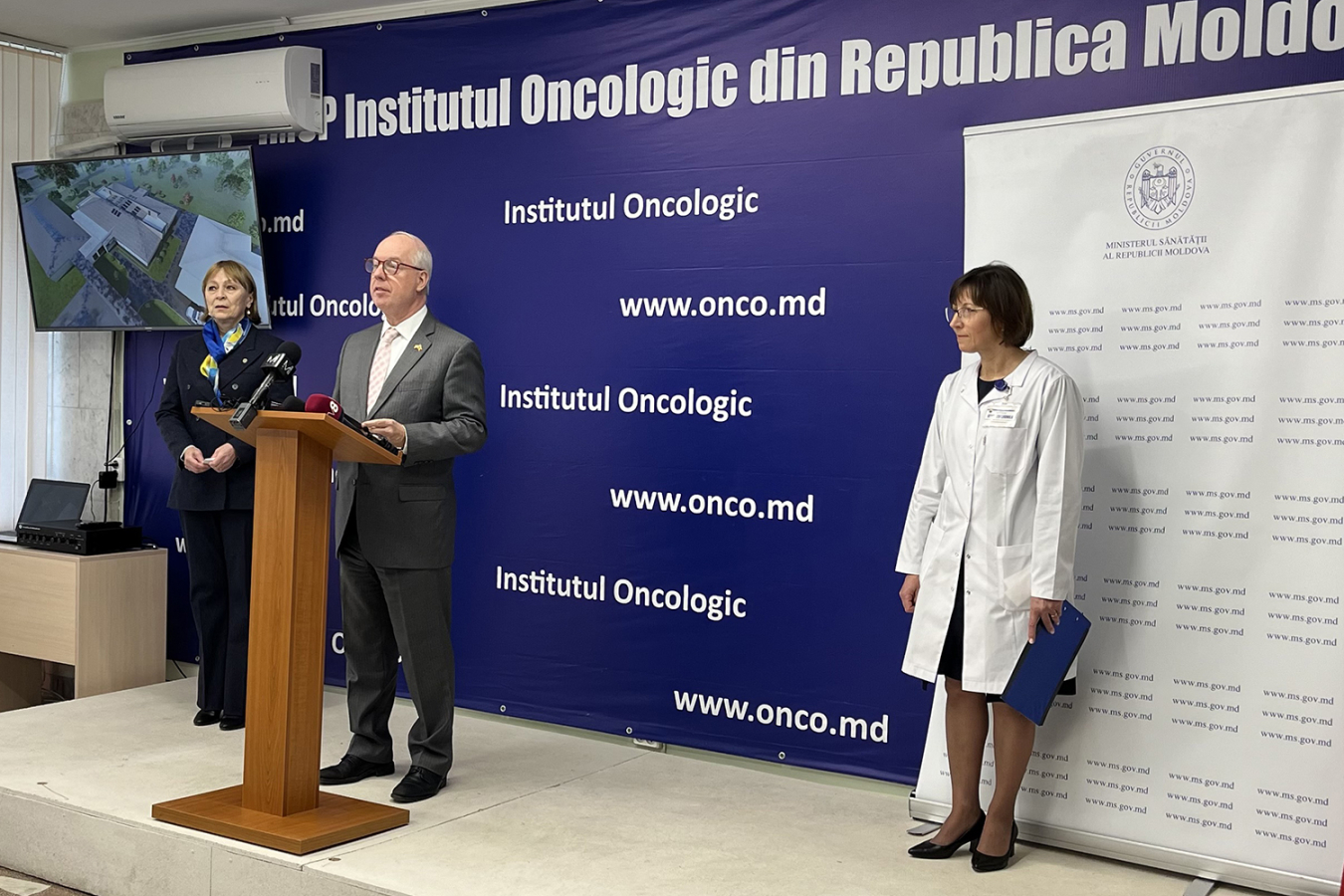NNSA, the Oncology Institute of Moldova, and the International Atomic Energy Agency broke ground this month on a new facility for advanced cancer treatment in Chişinău.
National Nuclear Security Administration
December 22, 2023
Initiative enables care at a critical time for country and region
NNSA, the Oncology Institute of Moldova, and the International Atomic Energy Agency (IAEA) broke ground this month on a new facility for advanced cancer treatment in Chişinău.
NNSA’s Office of Radiological Security (ORS) is working with the Oncology Institute of Moldova to build a secure, state-of-the-art facility that will provide cancer-fighting technology to Moldova. ORS is funding the construction of the facility to house a linear accelerator (LINAC), which will be procured and installed by the IAEA.
We are excited to continue our longstanding partnership with Moldova on radiological security by funding a new radiotherapy building for the linear accelerator. This technology brings life-saving care without the community risks that can be associated with radioactive source-based treatment options.
Speaking at the groundbreaking ceremony, U.S. Ambassador Kent Logsdon noted that “modern high-quality healthcare is at the heart of every prosperous economy and the people of the United States are proud to help the Moldovan medical system deliver much needed advanced treatment options to improve the quality of life for its citizens.”
“We are excited to continue our longstanding partnership with Moldova on radiological security by funding a new radiotherapy building for the linear accelerator,” said Corey Hinderstein, NNSA’s Deputy Administrator for Defense Nuclear Nonproliferation. “This technology brings life-saving care without the community risks that can be associated with radioactive source-based treatment options.”
Until now, the Oncology Institute has relied on source-based radiotherapy machines for treatment. The radiotherapy building at the Oncology Institute will be the first to be built in Moldova in over 40 years. As it looked to modernize, the institute opted for a LINAC over source-based radiotherapy machines because the advanced nuclear technology provides versatility and efficiency in cancer treatment, without incurring the risks associated with a source-based machine. Once the LINAC is operational, the institute will remove its source-based machines, and the radioactive sources will go to secure, long-term storage.
“This initiative will more than double our capacity at a time when we had exceeded capacity,” said Dr. Ala Nemerenco, Minister of Health of Moldova. “As the only cancer treatment center in Moldova and one of a few in the region, this facility and the linear accelerators are vital to the health of our country.”
A highly specialized form of cancer treatment, the capacity of one linear accelerator is estimated to be between 400 and 600 courses of treatment per year. “The IAEA is proud to have answered Moldova’s urgent call for support through the procurement of this new radiotherapy machine, combined with our ongoing efforts to train medical specialists in the safe use of medical radiation,” said Hua Liu, IAEA Deputy Director General and Head of the Department of Technical Cooperation. The support provided in Moldova is in line with the Agency’s global commitment to combatting growing cancer numbers through its Rays of Hope initiative.
The Oncology Institute is the sole treatment center in Moldova, which has a population of 2.5 million and since 2022 has been home to more than 100,000 Ukrainian refugees. “Over 800 cancer patients have been detected among the Ukrainian refugees who could benefit from radiotherapy services,” said Dr. Ruslan Baltaga, Director of the Institute of Oncology. “This effort is especially important given the humanitarian needs in the region prompted by Russia’s unprovoked war in Ukraine.”

